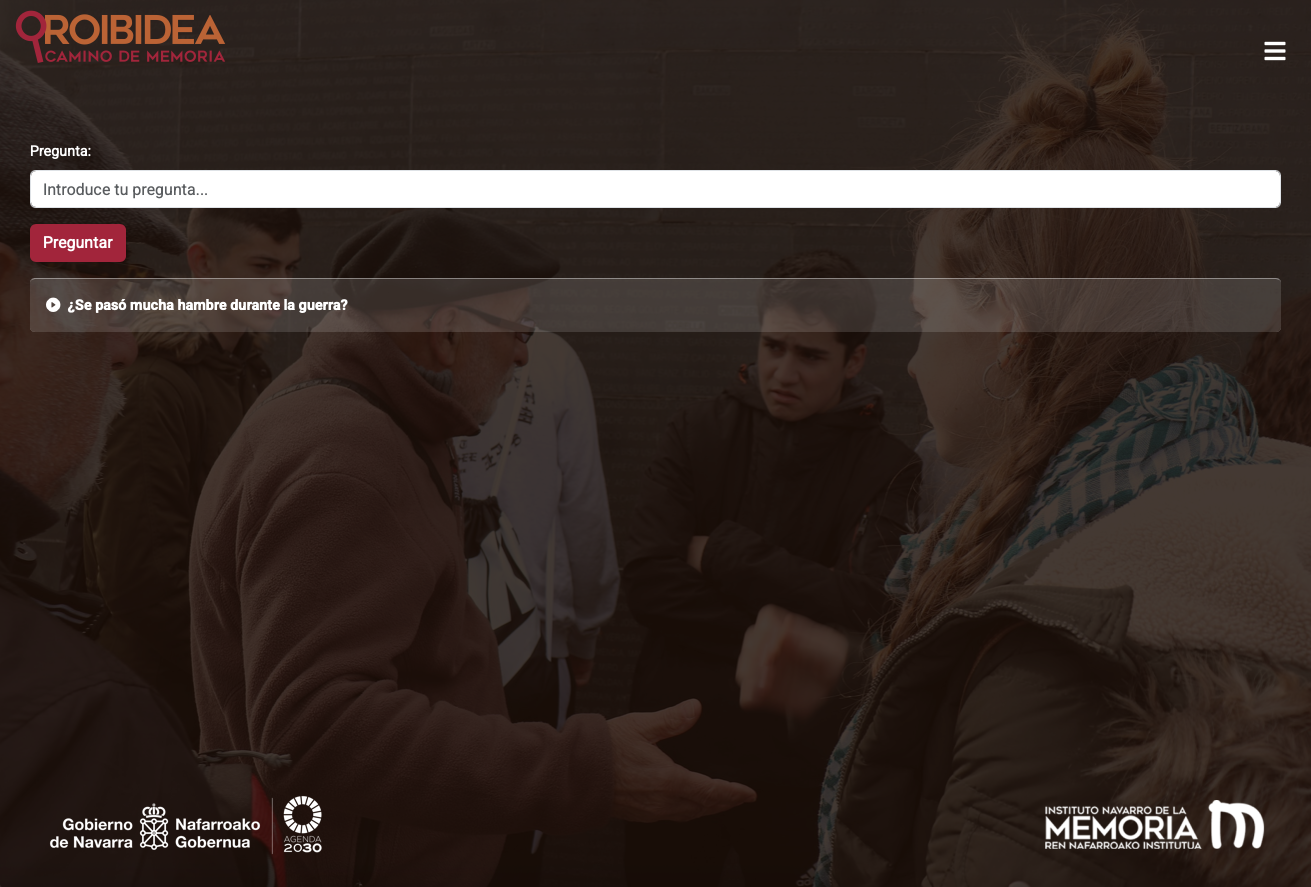Blog
A chatbot to learn from the past
La Foneria has developed a web interface powered by artificial intelligence that will allow students to better understand recent history.

The project
At La Foneria, we base our business model on the application of technology for the processing and dissemination of cultural heritage online, and we are currently focusing particularly on the use of artificial intelligence (AI) and computer vision in the field of cultural heritage.
To advance towards our goal, together with one of our clients, the Instituto Navarro de la Memoria, we applied for the Open and Disruptive Innovation Projects grant (2024 call) awarded by the Government of Catalonia through ACCIÓ, the Agency for Business Competitiveness.
The demonstrative project supports one of the main lines of work of the Instituto Navarro de la Memoria. This institution of the Government of Navarre develops the region's public policies on historical memory and runs an educational program called "Escuelas con Memoria", which involves around 10,000 students every year. Our project is aimed at enhancing this educational program.
Together with Bresca Digital, a worker cooperative specialized in tailor-made technological development, La Foneriahas created a chatbot that will allow teachers in schools across Navarre to work on historical memory with their students in an interactive and engaging way, thus fostering the transmission of the memory of our recent past to new generations, one of the fundamental pillars of transitional justice.
Innovation means rethinking
At first, we planned to develop a web interface that, through the use of three language-related AI technologies for processing oral recordings, would allow students to ask questions and receive natural language answers from a collection of around one hundred oral testimony videos.
However, in this initial stage we found that while general questions produced satisfactory results, more specific questions led to errors because the interviews did not contain enough information. The knowledge base was not broad enough.
This first phase of development was presented to the Instituto Navarro de la Memoria for testing with history professors from the Public University of Navarre (UPNA), and it was confirmed that, for more specific questions, the results were unsatisfactory.
The findings led to a redefinition of the project, maintaining natural language as the central element of the proposal (students' questions) and orality (interviews with witnesses), but highlighting the need to expand the knowledge basewith specialized bibliography to fill the content gaps that exist when relying exclusively on oral sources.
After this redesign of the initial proposal, the objective of the current phase is to create a functional web interfacethat integrates large language model (LLM) algorithms within Dédalo, allowing users to interact with both the oral recordings and the selected bibliography through natural language.
The educational platform will be tested with students from the "Escuelas con Memoria" program, ensuring it meets all requirements and provides an enriched learning experience, demonstrating the efficiency of AI technologies in education and historical memory.
Furthermore, thanks to the support from ACCIÓ, the developed platform will serve as a minimum viable productfor potential new clients, consolidating La Foneria's leadership in the development of innovative solutions for cultural heritage.
With the support of:
